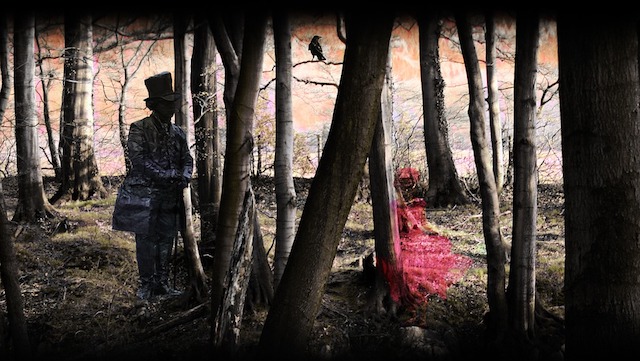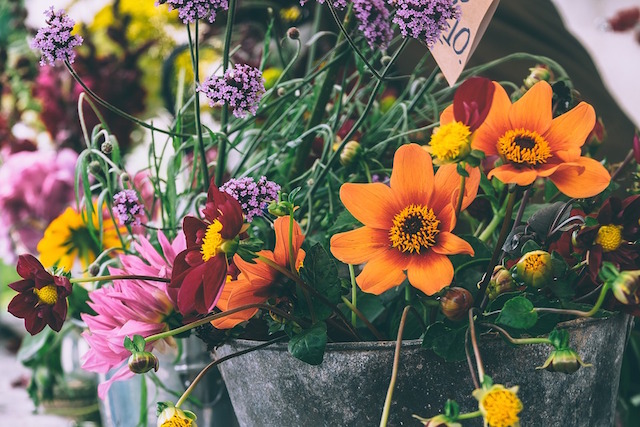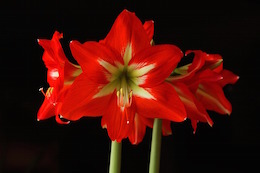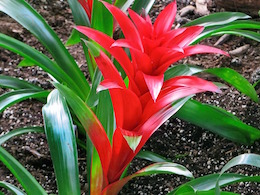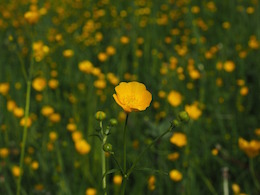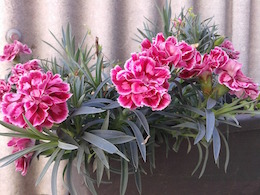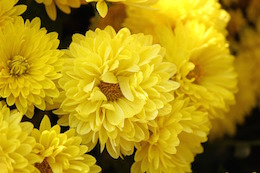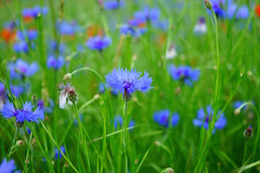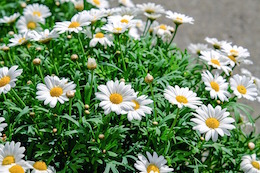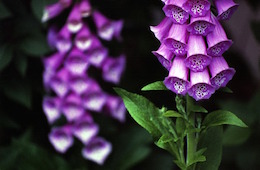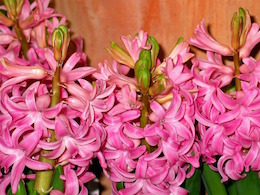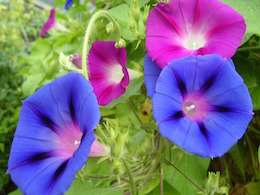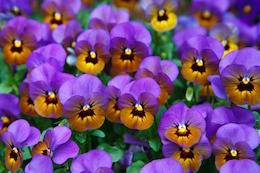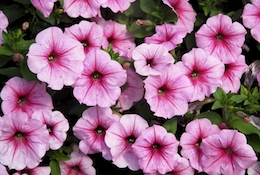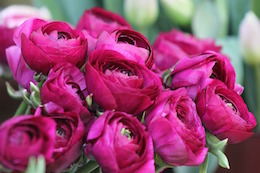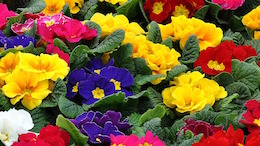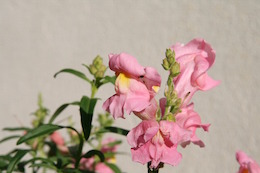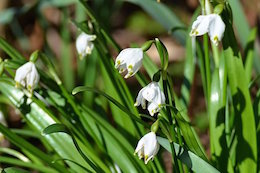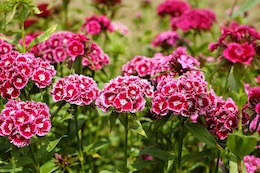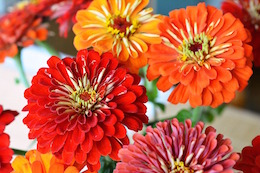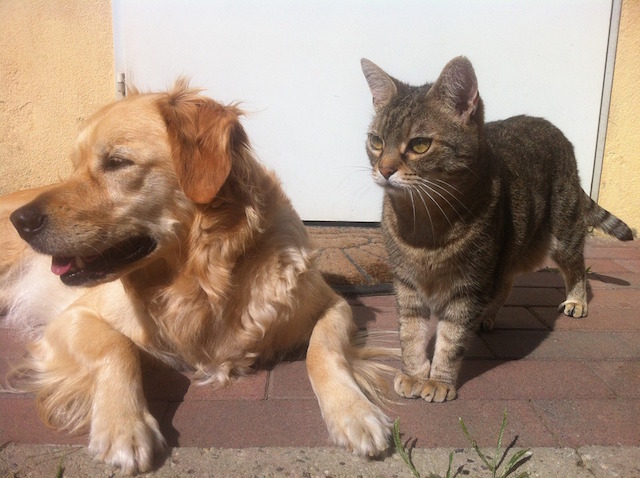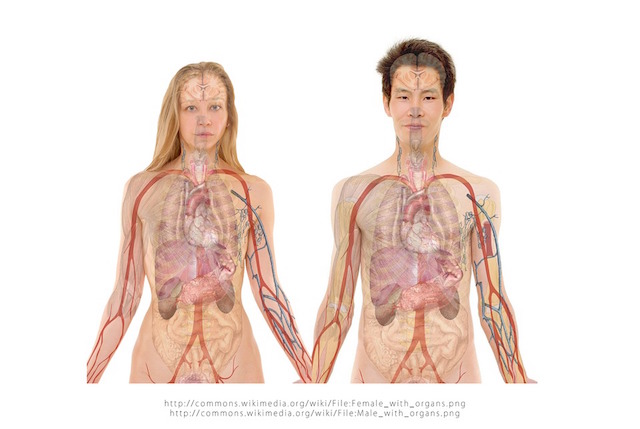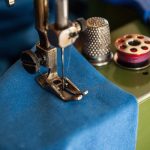In English we use a lot of expressions with animals because we think certain characteristics go with certain animals. Here is a list of the most common of these expressions.
CATS:

A copy cat (n.): someone who does the same thing as someone else
That was my idea. You’re just a copy cat.
A fraidy-cat (n.): someone who is easily frightened
My little sister is a fraidy-cat.
Cat got your tongue?: Don’t you have anything to say?
What’s the matter? Cat got your tongue?
Cat nap (n.): a short sleep
I had a cat nap this afternoon, so I should be okay for this evening.
Curiosity killed the cat: being too nosy may get you into trouble
We all want to know why, but remember curiosity killed the cat.
(Yes, but satisfaction brought him back.)
Let the cat out of the bag: tell a secret
My sister let the cat out of the bag and told my mother about the surprise party.
Raining cats and dogs: raining heavily
It’s raining cats and dogs, so let’s stay inside today.
DOGS:

Dog days of summer (n.): hot days when no one wants to work
These are the dog days of summer and I feel like doing nothing at all.
In the dog house (prep. phrase): in a lot of trouble with another person
I forgot our anniversary, and now I’m in the dog house.
Let sleeping dogs lie: not make trouble if one doesn’t have to
Don’t tell the boss about his problem. Just let sleeping dogs lie.
Top dog (n.): most important person in an organization
My brother is top dog in his sales department.
You can’t teach an old dog new tricks: It’s hard to get people to change their habits
I tried to get my grandmother to use Skype, but you can’t teach an old dog new tricks.
BIRDS:

A lame duck (n.): a person who can’t function because he’s at the end of his term
Obama wasn’t able to do anything after the election because he was a lame duck president
A wild goose chase: a hopeless attempt to get something
I went to several stores to try to find my favorite lipstick, but it was a wild goose chase.
As the crow flies (prep. phrase): the shortest distance
As the crow flies, the nearest town is 50 kilometers away.
Birds of a feather flock together: similar people hang out together
All the tekkies eat lunch together because, as we all know, birds of a feather flock together.
Chicken out (v.): to be too afraid to do something
He was going to ask her to the school dance, but he chickened out.
Cold turkey (n.): without the help of medication
My friend George quit cigarettes cold turkey.
Kill two birds with one stone (v): get two things done at the same time
You can kill two birds with one stone by having both birthday parties at the same time and in the same place.
Swan song (n.): a final act or performance before dying or retirement
She’s an almost 35-year-old ballerina, so this performance may be her swan song.
Watch something like a hawk: to watch intensely and for a long time
You’d better watch him like a hawk, or he’ll make a mistake we can’t fix.
HORSES:

A dark horse (n.): a person unknown to the general public
John Stewart is a dark horse in the next election, but he could win.
Change horses in midstream: make new plans when one is in the middle of doing old plans
We already decided to get a motel outside of San Francisco, so let’s not change horses in midstream.
Don’t look a gift horse in the mouth: don’t complain if a gift isn’t perfect
If I were you I would accept his help. Don’t look a gift horse in the mouth.
Get off one’s high horse: not think one is better than other people
I know she hurt you, but get off your high horse. You’re not perfect either.
Horse around (v.): play in a rough way
When we’re gone tonight I don’t want you and your brother to horse around.
Put the cart before the horse: do things in the wrong order
Planning your wedding date before he’s asked you to marry him is putting the cart before the horse.
Straight from the horse’s mouth (prep. phrase): directly from the original source
I didn’t make it up, I heard it straight from the horse’s mouth.
You can lead a horse to water, but you can’t make it drink: you can give someone an opportunity but you can’t force them to take it
She missed another job interview that I set up for her. That just shows you can lead a horse to water, but you can’t make it drink.
RATS:

Rat on someone (v.): report someone’s bad behavior to someone in authority
He ratted on his friend, and the police came and arrested him.
Rat race (n.): strong competition for power, money
I think he’s ready to leave the rat race and retire to northern California.
Smell a rat: feel that someone or something is not truthful
I smell a rat. I think someone on the committee is trying to make it difficult for the president.
PIGS:
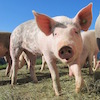
In a pig’s eye: I don’t believe you
In a pig’s eye! There’s no way you won every game you played.
Pig out (v.): eat a lot
I pigged out at the party, and now I feel a little sick.
A road hog (n.): a driver who uses more than his share of the road
Go around that road hog, or we’re going to be late.
WOLVES:

A lone wolf (n.): a person who prefers to be alone
My brother is kind of a lone wolf. He has come home only a couple times in the last ten years.
A wolf in sheep’s clothing (n.): a bad person who pretends to be good
Don’t be fooled by Peter’s kindness. He’s really a wolf in sheep’s clothing.
Cry wolf (v.): give a false alarm
She cried wolf too many times, and no one came to save her this time.
BULLS / COWS:

A bull in a china shop (n.): a very clumsy person
Don’t let your son run around the store. He’s like a bull in a china shop.
A cash cow (n.): a business that makes a lot of money
That gold mine in the Yukon is a cash cow.
A sacred cow (n.): something highly regarded and not open to criticism
Government pensions used to be a sacred cow, but now the public is demanding change.
Take the bull by the horns (v.): be responsible and do something
Rather than wait for something to happen, I think you should take the bull by the horns and do something.
INSECTS:

A busy bee (n.): someone who is busy all the time
She’s such a busy bee she doesn’t have time to go for coffee.
A fly in the ointment (n.): a small problem that could effect the whole thing
I know we need to get permission first, but that’s only a fly in the ointment.
A fly on the wall (n.): able to hear someone’s conversation
I would to be a fly on the wall and hear that conversation.
Ants in one’s pants (n.): very restless or excited about something
Before an exam I always get ants in my pants.
Make a beeline for (v.): go directly to
As soon as he got home, he made a beeline for the bathroom.
FISH:

A fish out of water (n.): very uncomfortable in a particular situation or environment
I feel like a fish out of water in my new job.
A kettle of fish (n.): an awkward, difficult or bad situation
After the chairperson quit, it left the rest of us in a kettle of fish.
A red herring (n.): something that misleads and takes attention away from the important issue
I think the missing money is just a red herring. There’s a bigger problem here.
Something smells fishy: It feels like something is wrong
I don’t know if I want to invest in his idea. Something smells fishy.
OTHER ANIMALS:
A paper tiger (n.): someone who appears to have power but who does not
Don’t pay much attention to my grandfather. He’s a paper tiger.
An eager beaver (n.): someone who is excited about doing something
You’re lucky as a teacher. It seems like you have a classroom of eager beavers.
As stubborn as a mule: very stubborn, unwilling to change one’s mind
I tried to convince her to come with us, but she’s as stubborn as a mule.
Black sheep of the family (n.): a person who is unlike everyone else
My older brother has always been the black sheep of the family.
Elephant in the room (n.): a topic that everyone’s thinking about but nobody is talking about
After she lost her baby, no one wanted to talk about the elephant in the room.
Get the lion’s share (v.): get more than one’s fair share
Because he’s the oldest, my brother gets the lions share of attention from our parents.
Guinea pig (n.): a person who is tested to see if something works
I don’t want to be your guinea pig, so no, I don’t want you to give me a haircut.
Monkey business (n.): mischief, unethical behavior
We’ll be back home at 11:00, and I don’t want any monkey business while we’re gone.
Your Score:
Your Ranking:
